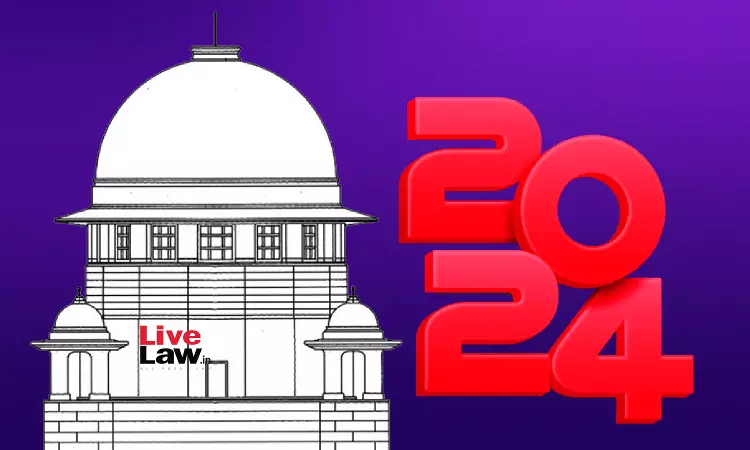2024 Supreme Court Decisions Relating To Judges & Judicial Service
Anmol Kaur Bawa
1 Jan 2025 9:57 AM IST

Next Story
1 Jan 2025 9:57 AM IST
In 2024, the Supreme Court passed notable orders and made key observations on multiple issues related to the working of the District Judiciary and Judicial Officers. Here is a relook of the important developments :High Court Chief Justice Cannot Individually Reconsider Judges' Appointment, Must Be Collectively Done By Collegium : Supreme CourtThe Supreme Court allowed a writ petition filed by...
